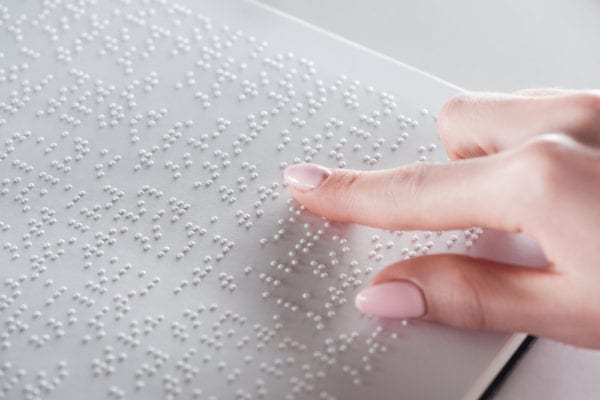‘We must be treated as equals’: Louis Braille’s genius invention and my novel Concerto
‘We must be treated as equals’: Louis Braille’s genius invention and my novel Concerto
‘We must be treated as equals’: Louis Braille’s genius invention and my novel Concerto
-
Hannah
-
Hannah

Catriona has various ideas for how she can work with Umberto, and one of them is to teach him Braille so that he can read and write music again. Here’s a glimpse of a conversation between Umberto and Catriona on the subject:
He nodded. ‘Louis Braille was a countryman of yours, of course. I remember visiting his childhood home in Coupvray as a boy, when Calandra took me on one of her European tours. I seem to recall that Braille refined upon a system of raised dots and dashes the army had been using on the battlefield. Clever – that way soldiers hadn’t needed to speak or use torches at night, which might have given themselves away to the enemy.’
‘That’s right,’ said Catriona, enjoying that their conversation was back on an easy footing again. ‘But what was so very fortunate was that Braille was a keen musician and made every effort to create a form of notation flexible enough for any instrument.’
Braille can open the door for Umberto to a world he once knew so well and loved. He can learn each letter of the alphabet and various symbols depicted with raised dots.
Braille himself was a musician – a cellist and organist. He played the organ for various churches in France, including the Church of Saint-Nicolas-des-Champs in Paris. He was also a teacher, a professor at the Royal Institute for Blind Youth in France, in the subjects of history, geometry and algebra. He carefully honed his reading and writing system and presented it to his peers at the Institute, but they were unimpressed and blocked it being used at the school. Sadly, it was only after Braille’s death, in his early forties, that his system was incorporated into the curriculum, on the insistence of his students. Over the next century, Braille spread across the world, and today it is recognised as an absolutely genius invention.
Like Umberto in my novel, Louis Braille knew what it was to have sight. He had lost his vision in an accident in childhood. And he knew very well the frustrations of blindness. He is quoted as saying:
‘Access to communication in the widest sense is access to knowledge, and that is vitally important for us if we [the blind] are not to go on being despised or patronized by condescending sighted people. We do not need pity, nor do we need to be reminded we are vulnerable. We must be treated as equals – and communication is the way this can be brought about.’
This really encapsulates Umberto’s position in the novel. He is a strong, independent man, and he wants – needs – to continue to be strong and independent; not vulnerable and certainly not attracting pity.
But in order to be the man he is deep down, Umberto needs to swallow his foolish pride and listen to Catriona when she encourages him to learn Braille. By setting finger to paper, he can cease feeling alone and bereft; he can be an equal; he can be a composer once more.